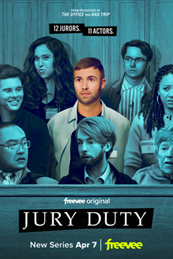 An essay ‘about’ AI, written ‘by’ AI. Maybe even ‘for’ AI? As my kids say, “Are we there yet?” It feels less like we’re crossing the Rubicon, more like crossing the space-time manifold. Our “Hal moment.” [Editor’s note: Hal, the most infamous engineering icon in literary/cinematic history, who attempts to take over the space ship from the humans aboard.] Computer both provider and consumer, what could go wrong? Read more
An essay ‘about’ AI, written ‘by’ AI. Maybe even ‘for’ AI? As my kids say, “Are we there yet?” It feels less like we’re crossing the Rubicon, more like crossing the space-time manifold. Our “Hal moment.” [Editor’s note: Hal, the most infamous engineering icon in literary/cinematic history, who attempts to take over the space ship from the humans aboard.] Computer both provider and consumer, what could go wrong? Read more
The Emotional Men of The Flash (2014–2023)
Pow! Smash! Punch! Those are expressions that easily come to mind when thinking of a superhero. This is because heroes like Superman or Batman traditionally solve their problems with lots of action, sometimes even with violence. In the CW show The Flash, Barry Allen aka The Flash takes a different approach – he tries to understand the villains’ backstories, and if there’s a possibility for redemption, he takes it. But this series doesn’t stop there – many of its characters display healthy masculinity. So maybe there’s another way to save the day.
No Story, No Life
Everything we do begins with a story. Without story, we would perish. We don’t get off that couch and head to the kitchen unless we have first told ourselves a little story: “There’s food in that kitchen, it will taste good, erase the feeling of hunger, and thanks to it I will survive.” We may not say those words out loud, and if we do, someone should call a doctor. But at the most primal level, that story is told and its lesson heeded.

Jury Duty’s Ronald Gladden or How to Accidentally Become a Star
 Remember “The Truman Show,” the iconic 90s movie starring Jim Carrey who slowly realizes that his entire life is being filmed against his will and broadcast to a mass audience? Well, imagine that, but make it true this time.
Remember “The Truman Show,” the iconic 90s movie starring Jim Carrey who slowly realizes that his entire life is being filmed against his will and broadcast to a mass audience? Well, imagine that, but make it true this time.
The setting:
Los Angeles. Fourteen people are called in for jury duty. Jury duty is part of America’s judicial system where randomly selected U.S. citizens are required – unless excused – to appear in court and take part in a case’s verdict.
Oktoberfest Beer and Blood Serves Up German Debauchery in Six Episodes

What would Germany be without the Oktoberfest? Definitely not worse off, I’d say. Under most circumstances, I couldn’t be tempted to watch a historical drama series with the Oktoberfest as a backdrop, but the Munich Wiesn innkeepers’ irate responses to the series have piqued my interest. Apparently, they feel that the Wiesn is hallowed ground and that its past and present virtue must not be disgraced. So lo and behold and without further ado, I present Oktoberfest Beer and Blood.
From the Lifeless Pages of History Books to the Big Screen: Chinonye Chukwu’s Till (2022)
“The lynching of my son has shown me that what happens to any of us
anywhere in the world had better be the business of us all.”
Mamie Till-Bradley in Till

The name Till is one that most Americans and many people around the world will recognize from their civil rights history lessons. In 1955, while visiting family, Emmett Till, a 14-year-old boy from Chicago, was brutally beaten and murdered for allegedly flirting with and whistling at a married white woman near Money, Mississippi. His bloated body was later found in the Tallahatchie River.
I must admit that when I first heard about the film Till, it immediately sparked my curiosity. Yes, I thought. The heinous crime that caused a media frenzy and galvanized the civil rights movement needs to be brought to new generations. But wait. We live in an age of trigger warnings (statements that alert readers or viewers to potentially disturbing content) and audiences with a heightened sensitivity to violence. So how can film director Chinonye Chukwu draw viewers to movie theaters and simultaneously do justice to the brutality of that crime?
It also intrigued me that Chukwu placed Emmett Till’s mother, Mamie Till-Bradley, in the film’s center. If she’s mentioned at all in American history textbooks, it’s mainly to recognize the role she played in the decision to show the world what Southern hatred looked like. She was the driving force to ensure an open casket at Emmett Till’s funeral. So what does the film reveal that most history books do not?







